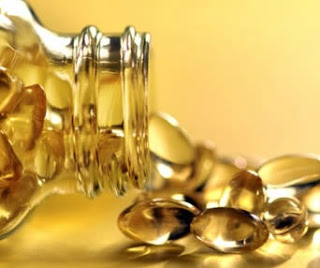Experts Slam Study Which Links Omega-3 To Prostate Cancer as Overblown Fearmongering
By Mae Chan
A raft of industry and academic experts have slammed the publication of a recent study claiming to ‘confirm’ a link between long-chain omega-3s and an increased risk of prostate cancer – arguing that the authors conclusions are overblown and have caused widespread fearmongering.
The study has drawn widespread criticism for the way in which the authors of the observational study jumped to the bold conclusion that their findings have “shown once again that use of nutritional supplements may be harmful.”
Indeed, many comments noted that the observational nature of the study (which can be found here) means that it cannot show any sort of cause and effect relationship.
Widget not in any sidebars
Dr Michele Sadler, scientific adviser to the Health Food Manufacturers’ Association (HFMA), commented that because the study was not designed to investigate the role of omega-3 in prostate cancer, “no firm conclusions can be drawn.”
“This type of evidence can indicate an association, but does not demonstrate cause and effect.”
Adding to the debate, experts from GOED (the Global Organization for EPA and DHA Omega-3s) said that if the findings of the new study were true, “then prostate cancer would be rampant in any country with high seafood consumption (Scandinavia, Japan etc) and conversely, low level consumption should be protective.”
“Clearly this is not the case.”
No supplement link
Speaking to NutraIngredients, Duffy MacKay, vice president of scientific and regulatory affairs at the for Responsible Nutrition (CRN) in the US echoed that the research was purely correlation research, and was “quick to blame dietary supplements even though there is no evidence that anybody in this study took fish oil dietary supplements.”
Dr Cara Welch, senior VP of scientific and regulatory affairs at the US Natural Products Association (NPA) aagreed in stating, “The authors’ jump to blaming supplements for these results is irresponsible, at best, when the study didn’t include any information about how the omega-3 intake was achieved.”
MacKay added that whilst the observational study had shown a significant correlation between omega-3 plasma levels and the risk of prostate cancer, there were several other ‘significant correlations’ from the study that also did not make sense when put against the background of scientific evidence.
“If you look at the data … It appears that the non-smokers had more aggressive prostate cancer. It appears that non-drinkers, or people who drank less than one alcoholic drink at baseline, were at a higher risk of prostate cancer,” MacKay noted.
“So that just shows how carefully we have to deal with these sorts of statistical exercises where we take numbers from old studies and try to make heads or tails of that.”
 “If you listen to this study, you should not only cut omega-3 but you should start smoking cigarettes and drinking more.”
“If you listen to this study, you should not only cut omega-3 but you should start smoking cigarettes and drinking more.”
Tiny changes with big effects?
GOED commented that the difference in mean blood plasma phospholipid fatty acids level for omega-3s between the groups was small – 4.66% in the combined cancer group versus 4.48% in the control.
“They are basing their results on just 0.2% difference in omega-3 levels.”
MacKay added that such a small difference in plasma omega-3 status between the top ‘high-status’ group and the bottom ‘low-status’ group was a major concern – especially given that both groups actually fall within the ‘normal’ range.
“This change [of 0.2%] literally could have occurred if somebody ate a fish sandwich on their way to get their blood drawn,” he said,
“These levels are not astronomically high levels. Therefore any country that has a diet based on fish … would have incredibly high levels of aggressive prostate cancer, and we know that’s not the case.”
“It’s a tiny and insignificant difference in plasma levels, which is linked to a 71% increase in cancer. And that’s just a red flag.”
Caution required
Professor Gopinadhan Paliyath, from the University of Guelph, Canada, commented that the study ‘must be dealt with caution’ – adding that: “I have no idea how this paper got accepted for publication.”
Widget not in any sidebars
Among the first to respond to the study’s findings, Alan Ruth, PhD, CEO of the Irish Health Trade Association, cited several large scale epidemiological studies, including those looking at native Japanese men, Inuit men. While Prof Paliyath noted that similar findings have been seen in men that live in coastal regions of South India.
All of these studies, he noted, have shown that a high intake of fish and a high omega-3 status is linked to a lower incidence of many cancers – including prostate cancer.
“In a 2010 meta-analysis of 31 studies published in the American Journal of Clinical Nutrition, the risks of prostate cancer diagnosis calculated for high fish consumption ranged from a 61% decrease in risk to a 77% increase in risk, and several showed no significant differences in risk at all,” said Dr Ruth.
“In the same meta-analysis, pooled data from four studies on fish consumption and death from prostate cancer (rather than diagnosis of prostate cancer) found a 63% decrease in risk for high fish consumption.”
“This study linking high blood concentrations of omega-3 fatty acids to an increased risk of prostate cancer should not discourage health conscious men from taking omega-3 supplements,” he added.
Mae Chan holds degrees in both physiology and nutritional sciences. She is also blogger and and technology enthusiast with a passion for disseminating information about health. This article appeared here at PreventDisease.com



